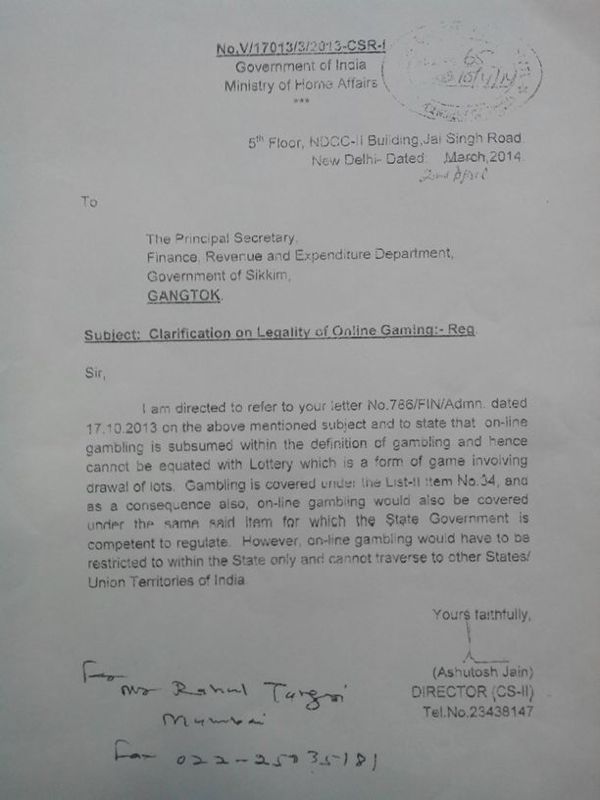A recent tweet by technology and gaming lawyer Jay Sayta has revealed that the states do hold the authority to regulate online gambling and betting. The tweet contains a letter which was sent by a Ministry of Home Affairs (MHA) official to Sikkim’s Finance Department in 2014, clarifying the legal standing of online gaming in India.
Although @Rajeev_GoI says states cannot regulate online gambling & betting, a 2014 letter from Ministry of Home Affairs to the Sikkim govt says states are competent to regulate online gaming within their territorial boundaries under Entry 34 of state list of constitution.… pic.twitter.com/3DkPRO772C
— Jay Sayta (@jnsayta) June 13, 2023
The letter says, “states are competent to regulate online gaming within their territorial boundaries under Entry 34 of state list of constitution”.
Minister of State for MeitY, Rajeev Chandrasekhar, however, has previously claimed that states making their own laws to regulate online gaming is meaningless, but the newly surfaced letter refutes that claim. Since there have been no amendments in due course taking these rights away from the states, Sayta then asks on what basis Chandrasekhar claimed that states do not have the authority to regulate online gaming.
“Online gambling would have to be restricted within the State only, and cannot traverse to other States/Union Territories of India,” the letter states further, adding that lottery cannot be equated to online gaming.

While states can regulate all forms of gambling, many have also tried banning online skill games on multiple occasions. These attempts, however, have been subdued by the courts in many instances stating that there is a difference between online gambling and online skill games.
Recently, the Tamil Nadu government, led by chief minister MK Stalin, came up with a bill banning online games and sent it to the governor RN Ravi for his assent. The bill was returned by Ravi after more than four months, claiming that state does not have authority to pass the bill.
TN law minister S Regupathy then clarified that states do hold the power to pass such a bill and regulate online gaming within its territory. The bill was sent back to the Governor and ultimately assented to. Interestingly, the bill also bans rummy which has been ruled as legal by the Supreme Court.
Several gaming companies have argued that online skill games should be permitted and have filed a petition in the Madras High Court for the same. Most recently, the court has granted the state 20 more days to provide its justification for the ban.



